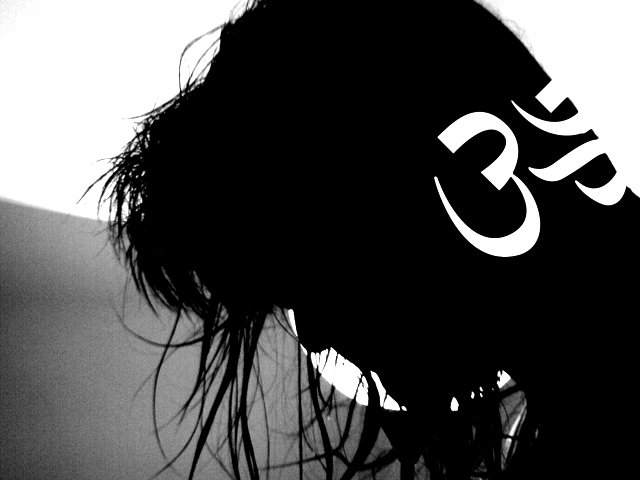
A Hindu legislator has cautioned the new administration against a possible exodus of his community members from the country. At the same time, he called for quick and effective legislation to safeguard the rights of minority communities in Pakistan.
Dr Mahesh Malani, the only non-Muslim politician who was elected to the Sindh Assembly from PS-61 (Tharparkar), claimed that discrimination against Hindus, the country’s largest minority group, was forcing his community members to migrate to ‘safer places’.
“The increasing sense of insecurity, caused by issues like forced conversion of Hindu girls to Islam, is compelling the community members to migrate to other places [like India],” said Dr Malani, who contested the May 11 elections on the PPPP ticket.

The Hindu legislator, who has been pushing for a proposed law seeking registration of Hindu marriages since 2008, said the government should form committees at the district level to deal with such cases immediately.
These committees should comprise Muslims, non-Muslims and members of the Council of Islamic Ideology and it should take up cases related to alleged forced conversions and forced marriages. He claimed that rampant poverty was the main reason behind such incidents, particularly in Sindh where Hindus make a substantial chunk of population.
Heading out
Some Hindu businessmen are also shifting their businesses due to lawlessness in Karachi, Dr Malani said.

Since September 2012, nearly 1,000 Hindu families have been struggling to migrate to India. Some of them succeeded in making their way to India, a development likely to raise questions about Pakistan’s ability to protect its religious minorities.
Several Hindu welfare organisations in Jodhpur, a city in the Indian state of Rajasthan, which shares a border with Sindh, have extended their support to Pakistani migrants, claimed Ramesh Jaipal of Hare Rama Foundation.
He also recalled that leaders of the Hindu community had taken up the issue with the Supreme Court of Pakistan, which ordered implementation of laws to address the concerns of minorities. “The existing laws should be implemented to protect their [minorities]’s rights – this was the court’s order,” said Malani, who also served as MNA on a reserved seat in the previous government.
At present, nine MPAs are representing minorities in the Sindh Assembly, eight in the Punjab Assembly and three each in the provincial legislatures of Balochistan and Khyber-Pakhtunkhwa.
Some 38 non-Muslims are representing the minority communities in Parliament as well as provincial assemblies where 10 members are elected on the reserved seats in the lower house of Parliament and four are already representing minorities in the Senate.
Published in The Express Tribune, June 10th, 2013.
COMMENTS (29)
Comments are moderated and generally will be posted if they are on-topic and not abusive.
For more information, please see our Comments FAQ















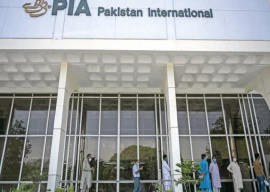
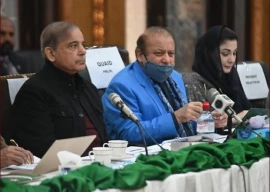
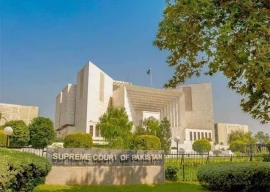
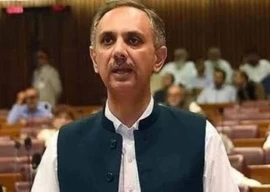
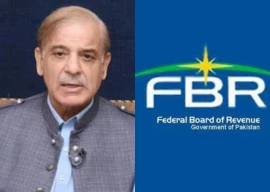








1714129906-0/Clint-Eastwood-(1)1714129906-0-270x192.webp)






@Iyaz Khan
Your comment only shows your ignorance about India, its people, its constitution and judiciary.
@Iyaz Khan
You might be happy to know that on 8th June 2013, in Barasat a place in West Bengal a hindu girl while returning home from her college was kidnapped, raped and killed by four muslim men. Police arrested three of them; fourth one is on the run. No riot, no mob lynching and most importantly there is no hyperbole in media. The next day 9th June in Delhi, the capital of India a muslim man rapes another hindu girl and run away, mercifully not killing her. Again no riot, no head line on cover page, no burning of muslim homes, just a five line coverage in 4th or 5th page on newspapers. Do you see how much freedom muslims enjoy in India and how discriminated and fearful they feel in India?
@Iyaz khan: do you know every year Minorities are growing with much faster rates then other majority? do you know there are more than 25 crore +1(considering myself) muslims in india?
@Abbu ka beta Can’t we just aside this concept and make a standard of rights which is accessible to every Pakistani.
Actually, you make an excellent point.I wish it can be followed practically.
No one under any circumstances should be allowed to force any one to convert to some religion without will. Islamic Republic of Pakistan, was indeed formed for Muslims to live in Islamic society, and Islamic societies never terrorize the minorities, the (government) responsible of regulations in those societies have to make sure that no one get discriminated due to Religion, color, if some country has harmed the innocent Muslims at their country and left a bad example for their citizens, why should we do the same, we must live like Pakistanis, and keep our religions for our selves and to practice at designated places. Every one living in Pakistan has same affiliation as any one else how could we say or believe that a non-Muslim do not love Pakistan, or a Muslim has not harmed Pakistan or brought shame to Islam. Please wake up do not destroy Pakistan, do not hurt humanity live and let live.
@Iyaz khan: Are you kidding me? Umm... Maybe because they are Pakistanis. And they deserve to live in their country, in peace. How about that?
There can be nothing more demeaning, disgraceful and insulting to Islam than "Rape to convert". No law can change anything when perversion has become divine.
If Pakistan has nothing to hide let them bring out the facts from NADRA records on the status of these girls prior to their conversion and their present status. I bet none of these girls still remain married to the men for whom they converted. They have just vanished and pushed to some houses of ill repute. Chandio commission knew this so they just folded up without bringing even one report.
Raped conversions of hindu girls is perversion to the extreme. No new laws can change this situation as this perversion is so deep rooted and spread throughout the muslim sections and in 90% of the muslim homes in Pakistan. In India a small section of criminals and perverts commit rape. There are protests in India against these. In Pakistan rape of hindu girls and cover up using Islam is praised and practiced everywhere. This is the reason that no woman has ever protested in Pakistan on rapes, be it of their own muslims or hindu girls as everyone was involved and indulged in rapes of hindu girls. They do not protest even the flogging of girl in Swat. You can also see in the video that two woman were holding the girls down so that the men could flog her. NADRA has records readily available on the past and present status of these girls. No one would bring these records out. because none of these converted girls still remain married to the men for whom they converted. Everyone knows where they are but no one will bring out the truth about them. Chandio commission did not do anything for the same reasons. In Pakistan, no hindu can send his daughter to the home of her classmate to play without a serious concern that he may be seeing her for the last time. No columnist in Pakistan, even female, will ever dare to write on this and they never did.
It is a shame that the population of minorities in Pakistan is continuously on the decline. On one hand we talk about Indus Valley Civilization on the other some do not want to treat minorities fair!
@Iyaz khan: who said u that,,india doesnt protect muslim's rights,,,,,i think u are unaware of india's muslim population,,,it is 15 crores,,nearly larger than many muslim countries,,,,,dont dare to talk about india in this matter,,u people r thinking that india's religion is hinduism,,,but u never know,,hindus r only first inhabitants of india's land,,,our govt is providing more subsidies than many of muslim countries like u for the piligrims to go to HAZ,,,,,come to india and ask any muslim bhai,,whether they r suffering by religious inequality????,,then they will said appropriate answer for u!!!!!
Its a shame just shame
is anyone stopping them from leaving? They want to leave fine, good luck. This is getting real nonsense, law & order situation is worst all over Pakistan specially in Sindh. Just look at Karachi, who been ruling Sindh since forever secular, progressive parties with ample hindu representation in parliament. Want to leave fine just stop the nonsense
@Saeed M.A: Wrong,they hold citizenship elsewhere or go into exile!
@Iyaz khan: Imagine if India goes by your views,You are talking about approx 200 million Muslims.Are you willing to take them back.You do not have to protect Hindus but you can allow them to exit honourably.that's not asking for much.
@Iyaz khan: If thats the case, why the muslims in India are not going to Pak?In fact,given the chance,majority of muslims will leave Pak for India!!! I can accept your allegations if some day a couple of millions of Muslims ran into Pak.I live in Allahabad(UP) and 20% of population of my city is Muslim.We live peacefully together,play cricket together and dance to the tunes of Bwood songs.There has never been any religious riot in Allahabad.Your claims are truly baseless and driven by hatred.
I seriously don't understand y this minority concept is raised. Can't we just aside this concept and make a standard of rights which is accessible to every Pakistani. I beleive this minority concept is a sense of discrimination within the Pakistani nation.
@Iyaz Khan, there are no minorities in India. Unlike us, she's secular, you see.
Iyaz khan "Why should we protect them or form laws for them…India never protects its minorities." Respected Sir, please leave India out of this and focus on your own country. thanks and salams
@Iyaz Khan: How come the Muslims of India are not migrating to Pakistan? The Indian Muslim population has moved from 12% in 47 to 15% today. Dosen't seem like they are moving out. Anyways, with people like you around its better the Hindus move to India
@Iyaz khan: First of all your statement about whether India protects its Muslims or not is factually incorrect. Yes there have been communal riots but people have faced consequences both in court of law. Moreover Muslims as a percentage of population in India has grown since 1947.
But none of the above facts are relevant. You should protect these people because they are Pakistani citizens. How India treats its citizens should have no bearing on how Pakistan treats its.
@iyaz khan they are the orignal settlers on this land, it is their country too, and who says india doesnt protect minorities? they have muslim presidents and Sikh prime ministers both in past and present is that true for Pakistan? do you know how many Muslims are present in India? 25 crores plus
Just waiting for cross border trolls to jump in as always.
@Iyaz khan: Sure that is why the population of every minority group in India keeps going up each year.
@Iyaz khan Why should we protect them or form laws for them…India never protects its minorities.
Firstly,You are perfect example as to why Pakistanis still struggles to find its place among human beings.
Secondly, the only people who are not facing an exodus from this land are politicians and Generals. Even Middle class has no place. Sigh....
@iyaz khan
brilliant logic. We should keep mistreating them because India allegedly mistreats her minorities. Just for the record, India has a better record of protesting minorities, incidents like Babri and Gujarat aside. And I say this as a Pakistani. How many minority heads of state have we had? India has had several, including Muslims.
Our minorities are equal citizens of Pakistan. Do you understand what equal citizenship means? It means that the rights of every citizen of this country, including minorities, will be ensured irrespective of what other countries do to their citizens.
Got it?
because they are humans and most of all Pakistanis, you idiot.
@Khan that's what Pakistan is and will always be. And about India, there is no need to expalin anything to people like you
@Iyaz Khan
Umm if anything, for the sake of humanity? Why are you basing your conscience on the internal happenings of India?
Why should we protect them or form laws for them...India never protects its minorities.